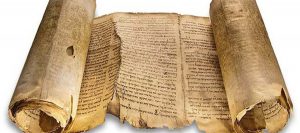Heritage
 |
| The greatest scientist al-Farabi was born in the Turkic family of the Kipchak clan. It is worth noting that the Turkic world has given mankind with a number of outstanding scientists and thinkers. Among them, astronomer and mathematician Abbas Dzhauhari, who together with al-Khorezmi took part in the compilation of famous astronomical tables, Mohammed Khaidar Dulati left an invaluable monument on the history and culture of Turkic nations “Tarih-i-Rashidi”, Mahmoud Kashgari created a work on Turkic dialectology “Divan lugat at-Turk “, geographer Janah ibn Hakan al-Kimaki, etc.
Al-Farabi’s “weapon” against social injustice and suffering was the word, enlightenment, philosophy. He believed in the achievement of happiness by people in earthly life. He expressed this idea in his works: “A Treatise on the Views of inhabitants of a Virtuous City,” “Civil Policy,” “Showing the Way to Happiness,” “On Achieving Happiness,” and others. The result of al-Farabi’s many-sided scientific research was the treatise “On the Classification of Sciences”, in which the sciences of that time were listed in strict order, the subject of research of each was determined. According to contemporaries, “no one has ever written anything like this before.” In the XII century “On the Classification of Sciences” had been translated into Latin twice. His works on logic include “Categories”, “Dilelectics”, “Book of Letters”, “Gems of Wisdom”, “Speeches Used in Logic”, “Analytics”, “Proof”, etc. The treatises on music and poetry include “the Great book of music”, “On the art of poetry”, “Treatise on the canons of the art of poetry”. The famous French orientalist Rudolph d’Erlange translated and published in Paris in 1930-1935 two-volume French translation of the “the Great book of music”, which was a significant contribution to the study of the heritage of al-Farabi in Europe. Al-Farabi not only knew the theory of music perfectly, but was able to play musical instruments. The phrase of M. Zhumabaev is widely known: “Who does not know the music of the Turks and the nine-string dombra of Farabi.” It can be assumed that al-Farabi is the inventor of the nine-string or four-string dombra “Ut”. Al-Farabi’s natural-science treatises include “Comments on Ptolemy’s Almagest,” “On objection to Galen about his disagreements with Aristotle regarding the organs of the human body,” “On the need for the art of chemistry,” and others. The rich cultural heritage of the Turkic thinkers provided fertile ground for development of modern Kazakhstan. |




